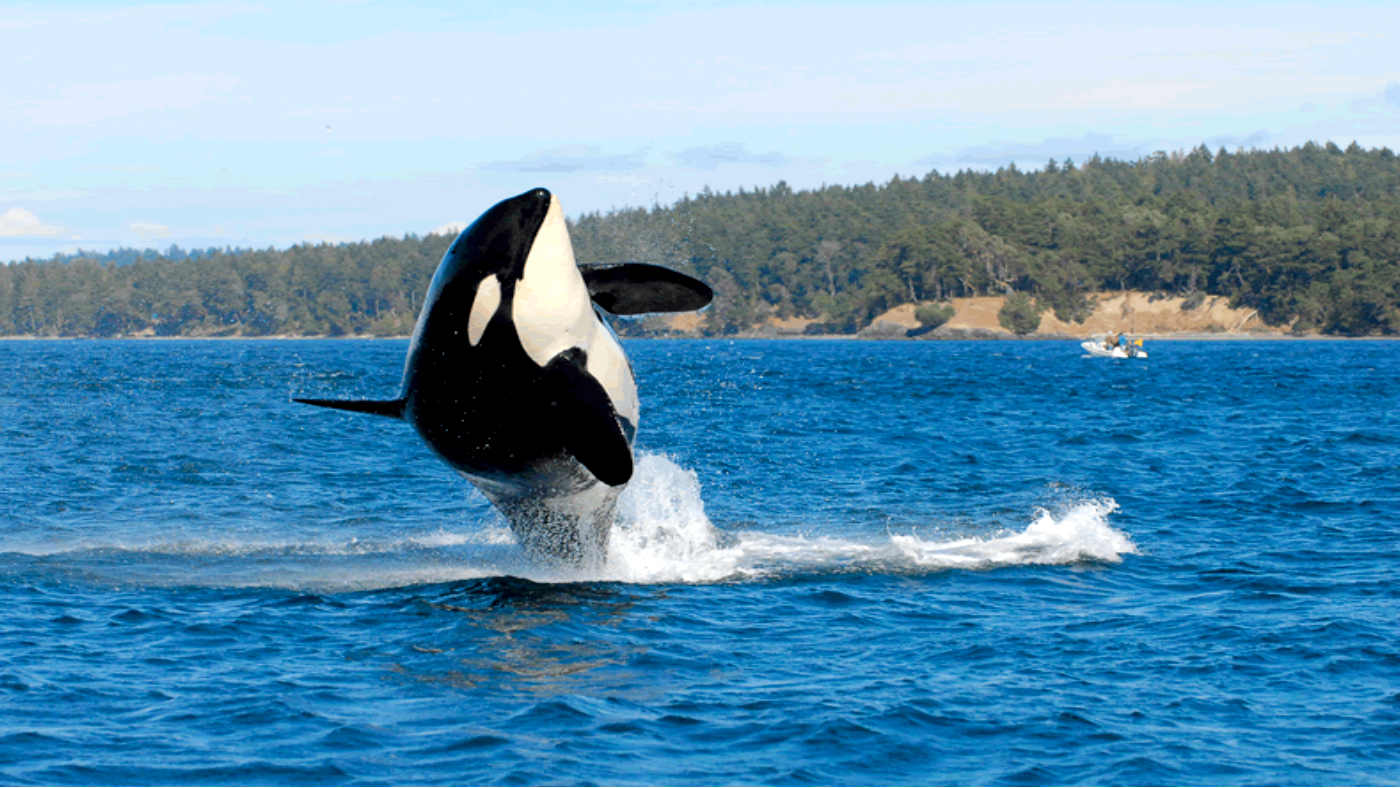Has the world's oldest killer whale died at the age of 105?
Granny the orca was last seen swimming away 'like the Energizer bunny' in October, say scientists

A free daily email with the biggest news stories of the day – and the best features from TheWeek.com
You are now subscribed
Your newsletter sign-up was successful
The world's oldest known killer whale is believed to have died, say scientists who have been monitoring the orca since 1976.
Officially known as J2, but nicknamed "Granny" by marine researchers due to her longevity, the whale was last seen on 12 October, swimming north with other members of her pod in the Salish Sea off the Pacific Northwest region between the US and Canada.
"She kept on going, like the Energizer bunny," Dr Ken Balcomb of the Center for Whale Research (CWR) wrote in her "obituary" on the centre's website. "With regret we now consider her deceased."
The Week
Escape your echo chamber. Get the facts behind the news, plus analysis from multiple perspectives.

Sign up for The Week's Free Newsletters
From our morning news briefing to a weekly Good News Newsletter, get the best of The Week delivered directly to your inbox.
From our morning news briefing to a weekly Good News Newsletter, get the best of The Week delivered directly to your inbox.
Granny is thought to have been roaming the ocean for around 105 years, which, as several news outlets have observed, would mean she was born before the Titanic sank in 1912. She was first observed and photographed in 1976, by Balcomb, who led a four decades-long study of orcas in the Salish.
Her apparent death means their population is now estimated at just 78, he said, with numbers hit by pollution, disturbance from shipping and dwindling stocks of salmon in recent decades.
The whales were the subject of last year's BBC Radio 4 documentary The Whale Menopause, which described how orcas, like humans, experience the menopause, the BBC reports.
The lifespan of most mammals rarely exceeds their reproductive years, but female whales like Granny can live for decades after ceasing to be fertile in their 40s or 50s.
A free daily email with the biggest news stories of the day – and the best features from TheWeek.com
These matriarchs "guide the pod as it forages, take care of other females' young calves and even feed the larger males," the BBC reports.
Professor Darren Croft from the University of Exeter, who leads evolutionary biology research into the whale menopause, told the BBC: "It was inevitable that this day was going to come but it is very sad news and a further blow to this population."
"Although J2 is gone, we will continue to benefit for many decades to come, from the incredible data collected on her life over the last 40 years by the Center for Whale Research."
-
 The ‘ravenous’ demand for Cornish minerals
The ‘ravenous’ demand for Cornish mineralsUnder the Radar Growing need for critical minerals to power tech has intensified ‘appetite’ for lithium, which could be a ‘huge boon’ for local economy
-
 Why are election experts taking Trump’s midterm threats seriously?
Why are election experts taking Trump’s midterm threats seriously?IN THE SPOTLIGHT As the president muses about polling place deployments and a centralized electoral system aimed at one-party control, lawmakers are taking this administration at its word
-
 ‘Restaurateurs have become millionaires’
‘Restaurateurs have become millionaires’Instant Opinion Opinion, comment and editorials of the day
-
 Epstein files topple law CEO, roil UK government
Epstein files topple law CEO, roil UK governmentSpeed Read Peter Mandelson, Britain’s former ambassador to the US, is caught up in the scandal
-
 Iran and US prepare to meet after skirmishes
Iran and US prepare to meet after skirmishesSpeed Read The incident comes amid heightened tensions in the Middle East
-
 Israel retrieves final hostage’s body from Gaza
Israel retrieves final hostage’s body from GazaSpeed Read The 24-year-old police officer was killed during the initial Hamas attack
-
 China’s Xi targets top general in growing purge
China’s Xi targets top general in growing purgeSpeed Read Zhang Youxia is being investigated over ‘grave violations’ of the law
-
 Panama and Canada are negotiating over a crucial copper mine
Panama and Canada are negotiating over a crucial copper mineIn the Spotlight Panama is set to make a final decision on the mine this summer
-
 Why Greenland’s natural resources are nearly impossible to mine
Why Greenland’s natural resources are nearly impossible to mineThe Explainer The country’s natural landscape makes the task extremely difficult
-
 Iran cuts internet as protests escalate
Iran cuts internet as protests escalateSpeed Reada Government buildings across the country have been set on fire
-
 US nabs ‘shadow’ tanker claimed by Russia
US nabs ‘shadow’ tanker claimed by RussiaSpeed Read The ship was one of two vessels seized by the US military